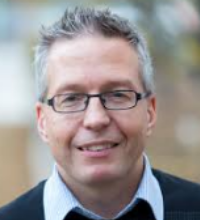 | Jonas Bergquist, MD, PhD
Uppsala University, Uppsala, Sweden
Proteomics Endocrinology Sample Prep Imaging
Jonas is an MD,PhD and since 2005 has been appointed chaired professor of analytical chemistry and neurochemistry at the Department of Chemistry - BMC, Uppsala University. He received training in Clinical Neuroscience at the Sahlgrenska University Hospital and Gothenburg University (PhD and associate professor) and moved to Uppsala in 1999. Since 2011 he has been a adjunct professor of Pathology at the University of Utah, Salt Lake City, USA, and since 2015 professor of Precision Medicine, Binzhou Med University, China. |
|
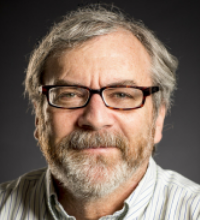 | Michael Gelb, PhD
University of Washington, Seattle, Washington, United States
Newborn Screening Small Molecules
Michael H. Gelb is Professor of Chemistry and Barbara L. Weinstein Endowed Chair in Chemistry, Adjunct Professor of Biochemistry at the University of Washington. Major developments in the Gelb lab include discovery of protein prenylation, development of ICAT proteomic reagents, identification of phospholipases involved in lipid mediator generation, development of anti-parasite drugs, and development of mass spectrometry for newborn screening. Awards include: Repligen Award in Chemistry of Biological Processes (Amer. Chem. Soc.), Univ.of Washington Faculty Lecture Award, Gustavus John Esselen Award (Harvard Univ.), AAAS Fellow, NIH Merit Award, Medicines for Malaria Project of the Year Award, Pfizer Award in Enzyme Chemistry, ICI Pharmaceuticals Award for Excellence in Chemistry. The Gelb lab has published more than 500 papers and 100 patents in biological chemistry. The Gelb laboratory has developed mass spectrometry for worldwide newborn screening of lysosomal storage diseases (the latest expansion of newborn screening panels). |
|
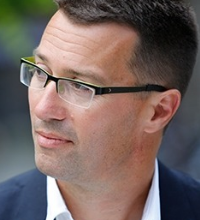 | Ron Heeren, PhD
Maastricht University, Maastricht, The Netherlands
Imaging Sample Prep
Maastricht University Professor Ron Heeren is a pioneer in the field of imaging mass spectrometry. During his career, he and his team have developed new physical measurement methods to map the distribution of molecules on complex surfaces. In all phases of his scientific career, he has actively contributed to the valorisation of the methods and techniques he has developed in a highly interdisciplinary setting. Instrumentation physics was and is the common thread through his development into the socially committed scientist he is today. Trained as a technical physicist, with an outstanding track record in innovative physical-chemical research, he is now active in an interdisciplinary biomedical setting. He heads the Maastricht MultiModal Molecular Imaging Institute (M4I) in which he uses the techniques he has developed for precision medicine and improved patient care. He has also actively given his research more (market) value through the establishment and participation in three companies. Various of the patents obtained by him have been taken over and / or licensed by various major private parties active in the scientific instrumentation market. |
|
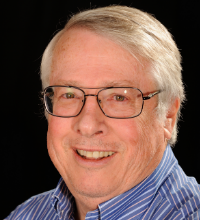 | David Herold, MD, PhD
MSACL, University of California San Diego and VA San Diego Medical Center, La Jolla, California, United States

Small Molecules Clinical Implementation
David Herold received his BS in Chemistry from Tulane University, his MA in Chemistry at the University of North Carolina-Chapel Hill, served 5 years in the USAF, received his MD and PhD at the University of Utah and then completed a Clinical Pathology residency at the University of Virginia. In 1982 he joined the University of Virginia faculty. In 1991 he moved to the University of California, San Diego and is now Professor of Pathology. He has authored and co-authored over 80 scientific publications and presented at numerous international scientific conferences. Inspired by the 2007 ASMS Asilomar conference on clinical mass spectrometry, Dr. Herold co-founded MSACL. He currently is CEO of MSACL and serves as its Executive Board Chair and Global Scientific Coordinator. |
|
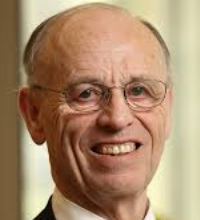 | Donald Hunt, PhD
University of Virginia, Charlottesville, Virginia, United States
 
Proteomics Instrumentation
Donald F. Hunt is the University Professor of Chemistry and Pathology at the University of Virginia. He is known for his research in the field of mass spectrometry, he developed electron capture negative ion mass spectrometry. He has received multiple awards for his work including the Distinguished Contribution Award from the American Society for Mass Spectrometry and MSACL, and the Thomson Medal from the International Mass Spectrometry Society. |
|
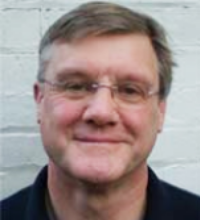 | Brian Keevil, PhD
University Hospital of South Manchester, Manchester, United Kingdom
Endocrinology Small Molecules Clinical Implementation
Brian Keevil is a Consultant Clinical Scientist and Head of the Clinical Biochemistry Department at the University Hospital of South Manchester. He is an Honorary Professor in Clinical Biochemistry at the University of Manchester and a member of the editorial board of the Annals of Clinical Biochemistry. He has developed an interest in steroid analysis using liquid chromatography mass spectrometry (LC-MS/MS) over the past 15 years with a particular emphasis on developing an LC-MS/MS service in a routine clinical laboratory. He has developed over 30 routine analytical methods and has published over 130 papers mainly on the clinical applications of LC-MS/MS. |
|
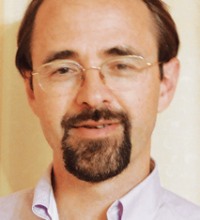 | Alexander Makarov, PhD
Thermo Fisher Scientific, Bremen, Germany

Instrumentation
From his early childhood, Alexander was interested in the development of technology. During his teenage years, he attempted to invent various pieces of technology that were either unrealistic or already implemented. This brought Alexander to the Moscow Engineering Physics Institute where he was encouraged to design analytical instrumentation, specifically the exotic time-of-flight mass spectrometers (TOFMS). After defending his PhD thesis in 1992 and joining the General Physics Institute of Russian Academy of Sciences, Alexander visited several UK universities and subsequently became a post-doc in Warwick University where he became involved in tandem mass spectrometry. In 1996, he joined a start-up company formed by Steve Davis and Andy Hofmann, called HD Technologies, located in Manchester, UK. This is where Alexander started to make his first steps towards the concept of the Orbitrap mass analyzer. His proof-of-principle results were presented at the ASMS Conference in 1999 and the term “Orbitrap analyzer” was used for the first time. Following the acquisition of HD Technologies by Thermo in 2000, he concentrated his research on interfacing the analyzer to continuous, rather than pulsed, ion sources with the practical goal of incorporating an electrospray ion source. Progress was accelerated by the expansion of the research team as well as transfer of the project to Thermo Scientific’s Bremen factory in Germany. This resulted in the commercial release of a new LTQ Orbitrap tandem mass spectrometer in 2005. Alexander has authored more than 100 papers and he holds more than 250 issued patents, including more than 110 US patents. Since 2006, Alexander has held the position of Director of Research in Life Sciences Mass Spectrometry for Thermo Scientific in Bremen. |
|
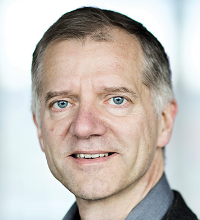 | Matthias Mann, PhD, Prof. Dr. rer. Nat.Dr. H.C
Max Planck Institute, Munich, Germany

Proteomics
Born in Germany, Matthias he studied mathematics and physics at the University of Göttingen. He received his Ph.D. in 1988 at Yale University where he worked in the group of John Fenn, who was later awarded the Nobel Prize in Chemistry. After a postdoctoral fellowship at the University of Southern Denmark in Odense Matthias became group leader at the European Molecular Biology Laboratory (EMBL) in Heidelberg. Later he went back to Odense as a professor of bioinformatics. Since 2005 he has been a director at the Max Planck Institute of Biochemistry in Munich. In addition, he became a principal investigator at the newly founded "Novo Nordisk Foundation Center for Protein Research" in Copenhagen. His research group originated both PreOmics – a company commercializing sample prep sets, and EVOSEP – a company commercializing protein analysis equipment. |
|
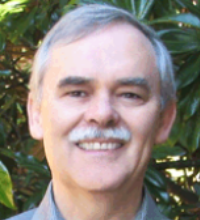 | David Millington, PhD
Duke University, Durham, North Carolina, United States
Newborn Screening Small Molecules Metabolomics
David S. Millington, PhD, is Emeritus Professor of Pediatrics, retired from Duke School of Medicine. He and his colleagues pioneered the application of tandem mass spectrometry for the targeted analysis of acylcarnitines that became a frontline diagnostic test for defects of fat oxidation and branched-chain amino acid catabolism. Subsequently, the method was modified to include several essential amino acids and applied to dried blood spots, paving the way for the expansion of newborn screening for from a handful to over 30 metabolic conditions. Expanded newborn screening by MS/MS is now applied to tens of millions of neonates annually and has help save thousands of lives. He was also honored by the MSACL in 2015 with their first Distinguished Contribution Award in recognition of achievements made in the field of clinical mass spectrometry. |
|
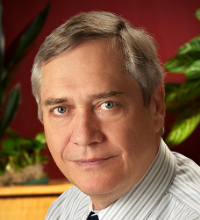 | Alan Rockwood, PhD, DABCC
University of Utah, School of Medicine
Small Molecules Instrumentation Proteomics Peptidomics
Alan Rockwood, PhD, DABCC is Professor (Clinical) Emeritus of Pathology at the University of Utah School of Medicine in Salt Lake City, Utah, USA. Originally trained in Physical Chemistry, he performed research on the fundamentals of mass spectrometry and instrumentation development before focusing his career on Clinical Chemistry. He became certified by the American Board of Clinical Chemistry and has held a Certificate of Qualification in Clinical Chemistry from the New York State Board of Health. Currently, his primary area of research is the development of mass spectrometry-based quantitative assays for targeted analytes of clinical interest, including small molecules and more recently proteins and peptides. Additionally, he maintains a smaller research effort on fundamentals of mass spectrometry, particularly novel approaches for isotopic profile calculations. He has published >150 papers in peer reviewed journals. |
|
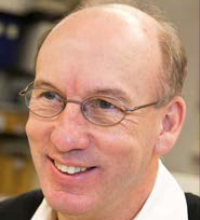 | Kenneth Setchell, PhD
Cincinnati Children’s Hospital Medical Center, Cincinnati, Ohio, United States

Small Molecules Steroids
Kenneth D. Setchell, PhD, joined the tenured faculty of the Department of Pediatrics, University of Cincinnati College of Medicine in 1984, having moved from the Clinical Research Centre of the Medical Research Council, (UK) where he previously held a tenured scientific position. In 1973 he obtained a PhD in steroid biochemistry from the University of London. He was then awarded a fellowship from The Royal Society for post-doctoral studies at the Karolinska Institute in Stockholm, Sweden (1974-1975) in the application of mass spectrometry to clinical and biomedical problems specifically relating to the steroid hormone field. He returned to the United Kingdom to a scientific position in the Division of Clinical Chemistry at the Medical Research Council's Clinical Research Centre where he continued his research in the field of steroids, expanding into cholesterol and bile acid metabolism as it related to gastrointestinal diseases. His parallel research discoveries of the first mammalian lignans later led to the discovery of soy isoflavones in humans, their association with soy intake, and established his research in the area of bioactive plant constituents and human nutrition and disease. |
|
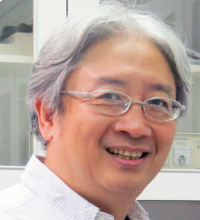 | Jentaie Shiea, PhD
National Sun Yat-sen University, Kaohsiung City, Taiwan
Ambient Ionization Anti-Doping Clinical Implementation Instrumentation Toxicology Small Molecules
Jentaie Shiea received his B.S. in Chemistry in 1981 from National Chung- Hsing University, and M.S. (1988) and Ph.D. (1991) degrees from Montana State University. After post-doctoral training in the Department of Material Science at Penn. State University, he joined National Sun Yat-Sen University as a faculty member in 1991, where he is currently a Distinguished Professor in the Department of Chemistry. In the last decade, Jentaie has devoted himself to promoting mass spectrometric research in Taiwan and throughout Asia. He served as the president of the Taiwan Society for Mass Spectrometry (2009- 2012), and was an executive board member and representative of Region B (Asia and Oceania) of the International Mass Spectrometry Foundation (2009-2016). Jentaie’s research interests have long involved biological and organic mass spectrometry, and his current research interests center around (i) the development of novel ambient ionization techniques for on-site detection of chemical compounds with applications to food safety, antiterrorism, anti-doping, and forensic and environmental chemistry, (ii) interfacing mass spectrometry with TLC, HPLC, and GC, and (iii) applying modern mass spectrometry for clinical diagnoses. |
|
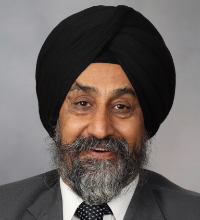 | Ravinder Singh, PhD
Mayo Clinic, Rochester, Minnesota, United States
Endocrinology Metabolomics Proteomics Vitamin D
Dr. Singh studies the application of liquid chromatography-tandem mass spectrometry (LC-MS/MS) to clinical laboratory analysis. Many of the methods that Dr. Singh developed are now considered reference methods. They have subsequently been utilized for method standardization efforts as well as to establish clinical disease correlates, which he has published with his collaborators. |
|
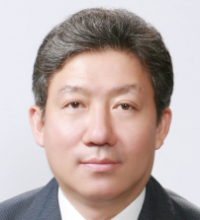 | Junghan Song, MD, PhD
Seoul National University, Seoul, Korea
TDM Endocrinology Newborn Screening
Dr. Junghan Song's clinical interests are in clinical chemistry and biochemical genetic testing. His research focuses are the development of new tests for the diagnosis of inherited metabolic disorders and the application of mass spectrometry in various clinical laboratory fields. |
|
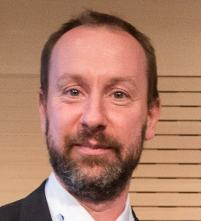 | Zoltan Takats, PhD
Imperial College, London, United Kingdom
 
Imaging Ambient Ionization Metabolomics Proteomics
Zoltan obtained his PhD from Eötvös Loránd University, Budapest, Hungary and worked as a post-doctoral research associate at Purdue University, Indiana, USA. After returning to Hungary, he served as Director of Cell Screen Research Centre and also as Head of Newborn Screening and Metabolic Diagnostic Laboratory at Semmelweis University, Budapest. After time as a Junior Research Group Leader at Justus Liebig University, Gießen, Germany, he moved to the United Kingdom in 2012 and currently works as a Professor of Analytical Chemistry at Imperial College London. He has pursued pioneering research in mass spectrometry and is one of the founders of the field of ‘Ambient Mass Spectrometry’. He is the primary inventor of six mass spectrometric ionization techniques. He was the recipient of the prestigious Mattauch-Herzog Award of the German Mass Spectrometry Society and the Hungarian Star Award for Outstanding Innovators. He is the founder of Prosolia Inc, Medimass Ltd and Massprom Ltd, all companies pursuing analytical and medical device development. |
|
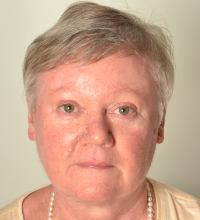 | Linda Thienpont, PhD
Thienpont & Stöckl Wissenschaftliches Consulting GbR (Em. Ghent University), Ghent, Belgium
Regulations & Standards Metrology Harmonization
Linda M. Thienpont, PhD is Prof. Emeritus from Ghent University (Belgium). She is now involved in “Thienpont & Stöckl Wissenschaftliches Consulting GbR” (Germany). During her academic life, she focused her main research interests on development/implementation of standardization/harmonization concepts, and improvement of clinical laboratory measurements. In this area, she has published over 180 peer reviewed papers. All the mass spectrometric reference measurement procedures (for substrates/metabolites, 25OH-vitamin D, total and free steroid and thyroid hormones) she developed are listed in the Database of the Joint Committee for Traceability in Laboratory Medicine (JCTLM) (see: http://www.bipm.org/). With her reference laboratory (still continuing at Ghent University under the name Ref4U) she offered reference laboratory services and consultancy to all major globally operating IVD manufacturers, who in turn participated and still do in projects chaired by her. Among many other awards she also received the MSACL 2015 EU Distinguished Contribution Award in Recognition of Achievements Made in the Field of Clinical Mass Spectrometry that have Furthered the Advancement of Knowledge and Implementation of Science for the Benefit of Humanity. |
|
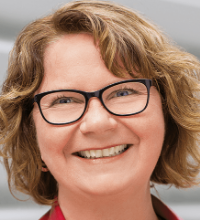 | Jennifer Van Eyk, PhD
Cedars-Sinai Heart Institute, Los Angeles, California, United States
Sample Prep Proteomics Method Development & Validation
Jennifer Van Eyk, PhD, is an international leader in the area of clinical proteomics and her lab has focused on developing technical pipelines for de novo discovery and larger scale quantitative mass spectrometry methods. This includes multiple reaction monitoring (MRM, also known as SRM) and most recently data independent acquisition. Dr. Van Eyk's laboratory is well known for the extreme technical quality of the data generated, rigorous quality control with tight %CV while applying these to key clinical questions. The aim is to maximize throughput and reproducibility in order to move targeted and robust discovery methods into large population healthy continuous assessment and clinical grade assays focusing on brain and cardiovascular diseases. |
|
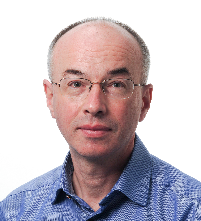 | Michael Vogeser, Prof. Dr. med.
University Hospital, LMU Munich, Munich, Germany

TDM Clinical Implementation Diagnostics Endocrinology Risk Management
Dr. Michael Vogeser, MD, is specialist in Laboratory Medicine and senior physician at the Hospital of the University of the Ludwig-Maximilians-University Munich, Germany (LMU; Institute of Laboratory Medicine). As an Associate Professor he is teaching Clinical Chemistry and Laboratory Medicine. The main scope of his scientific work is the application of mass spectrometric technologies in routine clinical laboratory testing as translational diagnostics. Besides method development in therapeutic drug monitoring and endocrinology a further particular field of his work is quality and risk management in mass spectrometry and in clinical testing in general. Michael has published >150 articles in peer reviewed medical journals. |
|
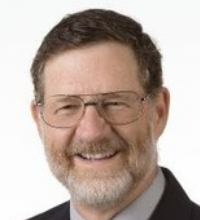 | Richard Yost, PhD
University of Florida, Gainesville, Florida, United States

Instrumentation Metabolomics Imaging
Dr. Yost is the University Professor and Head of Analytical Chemistry at the University of Florida. He is also director of the Southeast Center for Integrated Metabolomics (SECIM) and of NIH’s Metabolomics Consortium Coordinating Center (M3C). He is recognized internationally as a leader in the field of analytical chemistry, particularly tandem mass spectrometry (MS/MS). His research has been recognized with the ASMS Award for Distinguished Contribution in Mass Spectrometry, the MSACL Award for Distinguished Contribution to Clinical Mass Spectrometry, and the Florida Academy of Sciences Medal. Dr. Yost currently serves as President of the American Society for Mass Spectrometry (ASMS). |
|